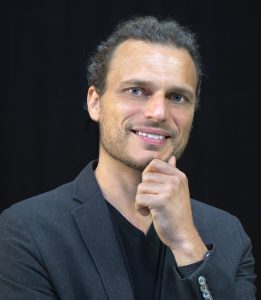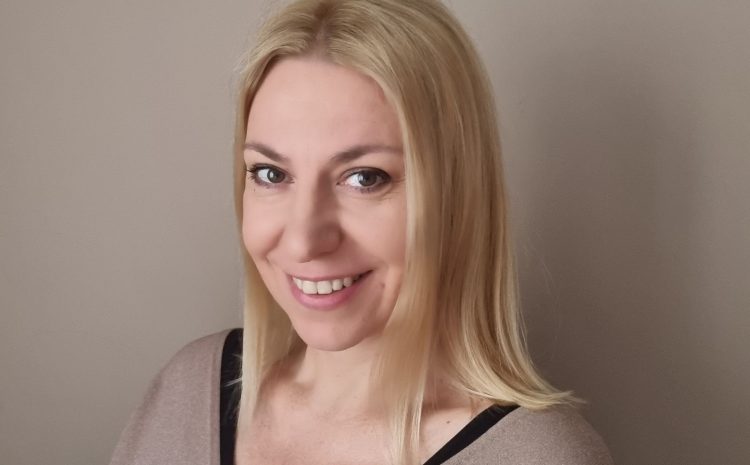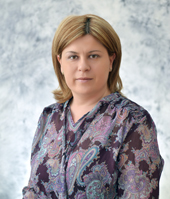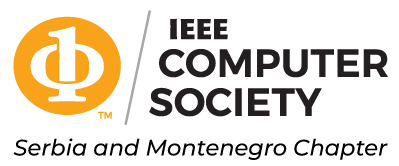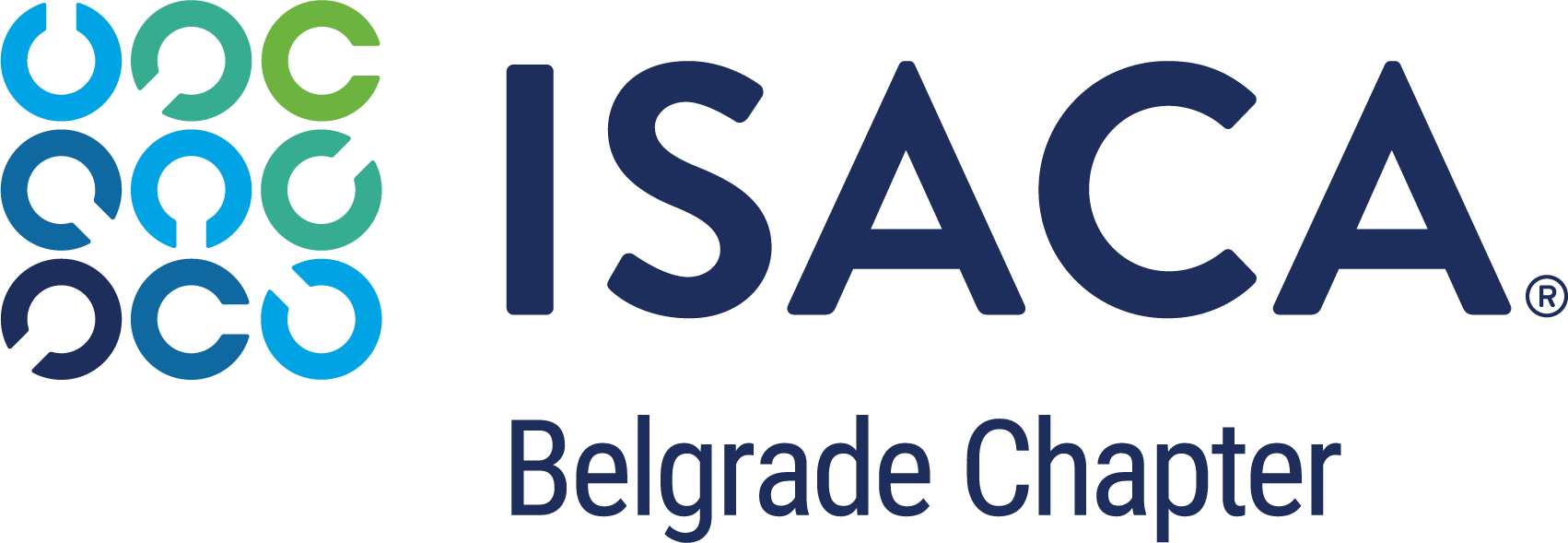EBT Conference 2023
E-business technologies
conference organized by Department for e-business
Faculty of Organizational Sciences, University of Belgrade, Serbia
15.6. - 17.6.2023.
PROCEEDINGS
E-business Technologies Conference 2023 Proceedings
are available in pdf document format and online.
KEY TOPICS
- E-business technologies
- Digital business ecosystems
- E-business management
- Agile e-business project management
- Digital marketing and social media
- Software engineering for e-business
- Software development in cloud environment
- Digital project-based learning
- Big data and e-business intelligence
- Artificial intelligence in e-business
- Internet of things and smart environments
- Blockchain technologies
- Mobile applications development
SPECIAL SESSION BLOCKCHAIN TECHNOLOGIES
This special session covers all aspects of blockchain technologies and their role in modern e-business ecosystems. This special session includes topics such as:
- blockchain components
- consensus algorithms
- smart contracts
- NFT and metaverse – technologies and applications
- applications and implementations (e-commerce, supply chain, manufacturing, transport, government, legal, fintech, healthcare, arts, sports, gaming etc.)
- security and privacy aspects of blockchain
- education for blockchain
This special session is organized within ACE-W3 Center of excellence, in cooperation with the University of Florida and the University of Belgrade, supported by the Algorand Foundation.
SPECIAL SESSION DIGITAL PROJECT-BASED LEARNING
This special session calls for research papers on theories, models and experiences in project-based learning, in various domains and levels of study. Besides the presentation of results of the D-PBL project, this special session aims to provide a framework for the exchange of knowledge and experiences related, but not limited to:
- Theories, models and methods of digital PBL
- PBL design issues
- Experiences on digital PBL
- Teachers’ competencies for PBL
- Assessment methods for PBL
- Transformation and impact on student learning and the teacher-student relationship with D-PBL
This special session is organized within Erasmus+ project “D-PBL: advancing project-based learning into the Digital Era”.
STUDENT BLOCKCHAIN SHOWCASE
As part of the Student blockchain showcase, students who participated in the W3 Algorand Hackathon or other hackathons can present their blockchain projects.
The presentation should contain:
- Introduction
- Problem Description
- BMC with description
- Description of the ecosystem
- Presentation of the implemented solution
- Conclusion
Important dates:
Full presentation submission: May 31
Review results and schedule of the presentation: June 5
Presentation day: June 17
D-PBL STUDENT WORKSHOP
During two online workshops, students will have the opportunity to work with mentors in international teams and learn things they can practically utilize in their future career.
KEYNOTE SPEAKERS
Vladimir Brusić
Li Dak Sum Chair Professor in Computing and Data science and Head of Smart Medicine Laboratory
Aleksandar Kavčić
Ph.D. Scientist And Professor At Carnegie Mellon University and founder of Alek Kavčić Foundation
Scott Spiegel
Founder and CEO of BitBasel
PROGRAM COMMITTEE
Aleksandra Labus (Faculty of organizational sciences, University of Belgrade, Serbia)
Aleksey Shamin (Nizhny Novgorod State Engineering and Economic University, Russia)
Anida Zahirović-Suhonjić (International business-information academy – IPI Academy, Tuzla, Bosnia and Hercegovina)
Artur Bjelica (Faculty of Medicine, University of Novi Sad, Serbia)
Arutyun I. Avetisyan (Academician of RAS, Ivannikov Institute for System Programming of the Russian Academy of Sciences, Russia)
Bob Travica (University of Manitoba, Canada)
Božidar Kliček (Faculty of Organization and Informatics, University of Zagreb, Croatia)
Božidar Radenković (Faculty of organizational sciences, University of Belgrade, Serbia)
Branka Rodić (Academy for applied studies Belgrade, College of Health Sciences, Serbia)
Brigita Šustickienė (VTDK, Lithuania)
Catalin Vrabie (National Uniersity of Political Studies and Public Administration, Romania)
Danijel Danković (University of Niš, Faculty of Electronic Engineering, Serbia)
Danijela Stojanović (Institute of Economic Sciences, Serbia)
Damir Bećirović, (International business-information academy – IPI Academy, Tuzla, Bosnia and Hercegovina)
Dragan Vukmirović (Faculty of organizational sciences, University of Belgrade, Serbia)
Dušan Barać (Faculty of organizational sciences, University of Belgrade, Serbia)
Dušan Savić (Faculty of organizational sciences, University of Belgrade, Serbia)
Fausto Pedro García Márquez (University of Castilla-La Mancha, Spain)
Gordan Gledec (University of Zagreb Faculty of Electrical Engineering and Computing, University of Zagreb, Croatia)
Grazina Strazdiene (VTDK, Lithuania)
Hicham Toumi (Higher School of Technology – Sidi Bennour ,Chouaïb Doukkali University El Jadida, Morocco)
Ikhtiar Ali Ghumro (Shah Abdul Latif University Khairpur, Pakistan)
Inna Kruglova (International Banking Institute named after Anatoly Sobchak, Russia)
Ivan Belča (Faculty of Physics, University of Belgrade, Serbia)
Jolanta Pileckiene (VTDK, Lithuania)
José Luís Reis (University Institute of Maia, Portugal)
José Antonio Marcos (Francisco de Vitoria University, Spain)
José Paulo Santos (University of Maia – ISMAI, Portugal)
Maria Sigova (International Banking Institute named after Anatoly Sobchak, Russia)
Marijana Despotović-Zrakić (Faculty of organizational sciences, University of Belgrade, Serbia)
Marija Jović (Faculty of organizational sciences, University of Belgrade, Serbia)
María Consuelo Valbuena (Francisco de Vitoria University, Spain)
Marko Đogatović (Faculty of transport and traffic engineering, University of Belgrade, Serbia)
Marko Suvajdžić (University of Florida, USA)
Michalis Xenos (Patras University, Greece)
Mihajlo Savić (Faculty of Electrical Engineering, University of Banja Luka, Bosnia and Hercegovina)
Mijalche Santa (Faculty of Economics, Ss. Cyril and Methodius University in Skopje)
Milorad Stanojević (Faculty of Transport and Traffic Engineering, University of Belgrade, Serbia)
Miloš Radenković (School of Computing, Union University, Serbia)
Miodrag Mihaljević(Mathematical Institute of Serbian Academy of Sciences and Arts, Serbia)
Nataša Bojković (Faculty of transport and traffic engineering, University of Belgrade, Serbia)
Nenad Stefanović (Faculty of Science, University of Kragujevac, Serbia)
Neven Vrček (Faculty of Organization and Informatics, University of Zagreb, Croatia)
prof.dr.sc. Nina Begičević Ređep (Faculty of Organization and Informatics, University of Zagreb, Croatia)
Nuno Escudeiro (Politecnico do Porto, Portugal)
Patrick Hrkut (University of Zilina, Slovakia)
Paula Escudeiro (Politecnico do Porto, Portugal)
Radmila Janičić (Faculty of organizational sciences, University of Belgrade, Serbia)
Radomir Mihajlović (New York Institute of Technology, USA)
Ravi Kant Jain (CSIR-Central Mechanical Engineering Research Institute, Durgapur, India)
Sandra Jednak (Faculty of organizational sciences, University of Belgrade, Serbia)
Saša Lazarević (Faculty of organizational sciences, University of Belgrade, Serbia)
Saša Milić (Institute of Electrical Engineering Nikola Tesla, Serbia)
Sergei Prokhorov (ISPRAS, Russia)
Sergey Suslov (Nizhny Novgorod State Engineering and Economic University, Russia)
Siniša Sremac (Faculty of Technical Sciences, University of Novi Sad, Serbia)
Snežana Popović (School of Computing, Union University, Serbia)
Slađana Benković (Faculty of organizational sciences, University of Belgrade, Serbia)
Snežana Knežević (Faculty of organizational sciences, University of Belgrade, Serbia)
Svetlana Mitrović (Faculty of project and innovation management, Educons university, Serbia)
Tatjana Davidović (Mathematical Institute of Serbian Academy of Sciences and Arts, Serbia)
Tatyana Astakhova (Nizhny Novgorod State Engineering and Economic University, Russia)
Veljko Jeremić (Faculty of organizational sciences, University of Belgrade, Serbia)
Vesna Bogojević Arsić (Faculty of organizational sciences, University of Belgrade, Serbia)
Vladimir Brusić (University of Nottingham Ningbo, China)
Vladimir Obradović (Faculty of organizational sciences, University of Belgrade, Serbia)
Vladimir Soloviev (Financial University under the Government of the Russian Federation, Russia)
Yolanda Cerezo (Francisco de Vitoria University, Spain)
Yüksel Akay Ünvan (Ankara Yıldırım Beyazıt University, Turkey)
Zoran Nikolić (Faculty of Physics, University of Belgrade, Serbia)
Zorica Bogdanović (Faculty of organizational sciences, University of Belgrade, Serbia)
ORGANIZING COMMITTEE
Aleksa Miletić (Faculty of organizational sciences, University of Belgrade, Serbia)
Aleksandra Labus (Faculty of organizational sciences, University of Belgrade, Serbia)
Božidar Radenković (Faculty of organizational sciences, University of Belgrade, Serbia)
Dušan Barać (Faculty of organizational sciences, University of Belgrade, Serbia)
Marijana Despotović-Zrakić (Faculty of organizational sciences, University of Belgrade, Serbia)
Milica Simić (Faculty of organizational sciences, University of Belgrade, Serbia)
Petar Lukovac (Faculty of organizational sciences, University of Belgrade, Serbia)
Tamara Naumović (Faculty of organizational sciences, University of Belgrade, Serbia)
Zorica Bogdanović (Faculty of organizational sciences, University of Belgrade, Serbia)
PROGRAM
Keynote: Smart Health Home
Speaker: Vladimir Brusić
Smart Health Home combines the Internet of Health Things (IoHT) and data communication technologies with health-related applications, to deliver healthcare services at home. SHH offers clear advantages for healthcare delivery: the available sensors are reliable, it enables for 24-hours health status monitoring, the IoHT devices are context-aware, and SHH can learn from acquired data through data analytics and machine learning methodologies. The barriers to adoption of SHH include the deficit of medically meaningful and interpretable reporting; limited accuracy, reliability, and trustworthiness of measurements; lack of compliance to recommended or mandated medical procedures, device standards, and software standards; concerns about data privacy, safety, security; and limited compliance with laws and ethical norms. These barriers can be overcome by innovative solutions developed through the adoption of standardized procedures, application of software engineering principles, and multi-layer information fusion. Multiple SHH connected through community data exchange center offers promise for deploying of recent technologies of Federated Learning, and Smart Contracts to enhance community health monitoring and rapid response to address individual health needs
Keynote: The State of the Serbian Public Education System
Speaker: Aleksandar Kavčić:
Chaos. In physics, it is described as the property of a complex system whose behavior is so unpredictable as to appear random. Colloquially, it is described as complete disorder and confusion. Either description applies. The Serbian education system hosts institutions of unimaginable extremes. On the one hand, there are completely dysfunctional schools, yet on the other, Serbia hosts institutions that are the envy of much better funded education systems. So, how did we come to
Cocktail
Keynote: From Fringe to Mainstream: the Evolution of Blockchain Adoption
Speaker: Scott Spiegel
This talk examines the progression of blockchain technology from its origins as a fringe internet currency to its widespread adoption in various industries and the public sector, highlighting key milestones and real-world applications
Parallel sessions - Session 1: Digital business ecosystems
1. Digital Business System of Sharing Economy: How can European Countries Be segmented?
Milica Maričić, Veljko Uskoković, Veljko Jeremić
2. Digital Ecosystem Model for Workplace Transition in Post-COVID Era
Dino Arnaut, Anida Zahirović Suhonjić, Adnana Beganlić, Damir Bećirović
3. Costs and Benefits of the Implementation of Smart Grids in the European Union
Miloš Parežanin
4. Digitalization of Factoring Services: A Quick Scoping Review
Miloš Milosavljević, Željko Spasenić, Nemanja Milovanović
5. E-government Divide – Case Study Serbia
Stefan Radojičić, Dejana Kresovic, Željko Bolbotinović, Nebojša Dragović, Aleksandar Krstić, Dragan Vukmirović
6. Digital Transformation of Judiciary
Ana Đilas, Dušan Kuzmanović
7. The role of Healthy e-Business in Society 5.0: The empowerment of the Human-Centricera
Vesna Tornjanski, Snežana Knežević, Vuk Mirčetić
Session chairs: Dušan Barać
Parallel sessions - Session 2: Blockchain
1. Blockchain-Based Healthcare Ecosystem
Milica Tomić, Danica Sovtić, Aleksandra Trpkov, Branka Rodić, Aleksandra Labus
2. DApp for Food Traceability Based on PyTeal and Algorand
Septian Nudin, Aleksandra Labus, Petar Lukovac, Marko Suvajdžić
3. Measuring the Performance of the Innovative Potential of the Academy on the Example of the Algorand WEB 3.0 Hackathon
Ana Miličević, Marijana Despotović-Zrakić, Tamara Naumović, Marko Suvajdžić, Božidar Radenković
4. Revolutionizing the Real Estate Ecosystem with Blockchain: Opportunities, Challenges, and Future Prospects
Aleksandar Arnautovic, Marijana Despotović-Zrakić, Aleksandra Labus
5. Applying Multi-Criteria Decision Making to Prioritization of Web 3.0 Development Factors
Ebenezer Agbozo, Kumar Avinash, Al-Samarrayi Safa Shakir Awad
6. Blockchain Ecosystem for the Real Estate Industry
Ivana Nikolić, Dušan Barać, Aleksa Miletić
7. Decentralized Autonomous Organizations: State and Perspectives
Vukašin Despotović, Daniel Bjelica, Artur Bjelica, Dušan Barać
8. The Role of Blockchain in Innovative Fintech Services
Branko Ćebić, Miloš Mijić
Session chairs: Marko Suvajdžić | Aleksandra Labus
Parallel sessions - Session 3: Digital project based learning
1. Classroom Layouts for Technology-based Active Learning Spaces
José Paulo Marques dos Santos, Beatriz Martins, José Luís Reis
2. Project-basedLearning with Mattermost in Higher Education
Aleksandra Ćirković, Zorica Bogdanović, Božidar Radenković
3. Statistical Techniques for Project-based Learning
Miodrag Šljukić
4. IoT Game-based Learning Model in Education
Luka Petrović, Danijela Stojanović, Lazar Živojinović, Biljana Đurđević
5.Digital Project-Based Learning for Kids: A Case Study of Start-up Kids Campus
Teklehaimanot Embaye, Zorica Bogdanović, Salina Imam Belay
Session chairs: Jose Paulo Marques dos Santos
Parallel sessions - Session 4: Digital marketing and social media
1. Analysis of Factors Influencing Website Conversion Rate
Urvika Murarka
2. The Impact of Social Media Influencers on Consumer Behavior in Digital Marketing
Isidora Todorov, Katarina Lazarević, Mila Cvetković
3. Adoption of Digital Marketing Technologies in Indian Healthcare Sector
Hitansh Gupta
4. E-commerce and Ethics: Insights from Industry Practitioners
Manoj Kumar Kamila, Sahil Singh Jasrotia, Pooja Kushwaha, Shagun Chib
5. Digital Marketing Strategy and Application of Social Media in Crisis PR on Railways
Danijela Stojanović, Nenad Stanisavljević, Dijana Stojanović
Session chairs: Danijela Stojanović
Parallel sessions - Session 5: Big data and artificial intelligence
1. Big Data Driven Architecture for Crowdsensing Systems in Smart Cities
Aleksa Miletić, Miloš Radenković, Branislav Jovanić, Vladimir Vujin
2. Benefits and Risks of Artificial Intelligence in Cyber security and Phishing Attacks
Mustafa Bešić
3. The Application of ChatGPT forIdentification of Microservices
Tatjana Stojanović, Saša Lazarević
4. Fuzzy Logic Based Product Comparison for Different E-Commerce Websites
Devashree Pravakar, Vrinda Anil Thaker, Rewa Abhyankar, Praveen Joe I R
5. Factors Influencing Cloud Analytics Adoption in Indian Pharmaceutical Industry
Atharv Kansal
6. Comparing Models for Analysing Database Pattern
Lakshya Goyal
7. Evaluating the Performance of Some Statistical Location Difference Tests
Artem D. Cheremukhin
Session chairs: Saša Lazarević
Coffee break
Parallel sessions - Session 6: Smart environments, Smart healthcare
1. Convolutional Neural Network Model in Human Motion Detection Based on FMCW Radar Signals
Lazar Jugović, Ivan Vajs, Milica Badža Atanasijević, Milan Stojanović, Milica M. Janković
2. Fall Detection of Elderly in Ambient Assisted Smart Living Using CNN Based Ensemble Approach
Sakshi Shukralia, M.P.S Bhatia, Pinaki Chakraborty
3. Mobile Application for People Suffering From color Blindness
Anna Krasnova, Anna Romanova, Alexey Susanov
4. IoT Enabled Software Platform for Air Quality Measurements
Nikola Mitrović, Milan Đorđević, Sandra Veljković, Danijel Danković
5. Outcome Based Business Models Influenced with Internet of Things – in Agriculture
Miloš Lončar, Dejana Kresović, Željko Bolbotinović, Stefan Radojičić, Aleksandar Krstić, Jovanka Vukmirović
6. IoT System for Smart Beekeeping
Petar Lukovac, Milica Simić, Božidar Radenković
7. The Effective Development of the Warehouse Logistics Industry: Advantages of Automatic Weighing and Cargo Control Systems
Anastasia Krivonos, Inna Kruglova
Session chairs: Branka Rodić
Parallel sessions - Session 7: VR, AR and computer simulation
1. Simulation and Analysis of Blockchain Operations Model with RSA Algorithm in CrypTool2
Hana Stefanović, Ana Savić, Goran Bjelobaba, Nikola Popović
2. Application of 3D Modeling in the Fashion Industry
Marija Vrljanac, Katarina Šikman, Milica Simić, Tamara Naumović, Marijana Despotović-Zrakić
3. A Methodological Framework: Studying The Effect Of An Augmented Reality Mobile App on Online Customer Experience And Purchase Intention
Nii-Odartey Mills
4. Digital Twin Road Network as a Part of ITS Rig Move Model: Case Study Oil Industry of Oman
Miloš Durković
5. .Simulation Models for Assessing the Probabilistic and Energy Characteristics of Information Interaction in the Internet of Things
Nataylia Verzun, Mikhail Kolbanev, Tatyana Astakhova, Anna Krasnova, Anna Romanova
6. Geospatial Data - Platform, Products and Applications
Marina Jovanović-Milenković
Session chairs: Marijana Despotović-Zrakić
Coffee break
Student presentations: Blockchain showcase
1. Fashion code - Aleksandra Trpkov, Danica Sovtić, Milica Spaić (mentors: Professor Aleksandra Labus and Petar Lukovac)
2. EasyHealth - Milica Tomić, Ksenija Fratrić, Ana-Marija Đurić (mentors: Professor Aleksandra Labus and Petar Lukovac)
3. Fashion block - Marija Vrljanac, Katarina Šikman, Veljko Cukanić (mentors: Professor Aleksandra Labus and Petar Lukovac)
4. Web 4 - Septian Nudin, Luka Šević, Lana Radmilović (mentor Petar Lukovac)
5. GlasChain - Gabrielle Christie, Maylen Casa,l Alexander Olson, Sean Durkin (mentor Professor Markus Santoso)
6. Gator Hackers - Savannah Traub, Austin Fernandez, Christopher Truta, Katrina Das, Karis Dunnam (mentor Professor Markus Santoso)
7. Silly Little Team - Tsehai de Souza, Ky’mani Brown, Kinnara Bosworth, Juno Strunk, Zhuoang Cai (mentor Professor Markus Santoso)




